Each year I intentionally wait to see a majority of the report offerings for our Annual before I put pen to paper. That's not just procrastination, but perhaps keeps me from simply reiterating much of what is already being said – and said quite well, I might add! Thanks to all who took the time to help make this report capture the significance of the past year.
Read the entire Annual Report for 2019
Our Context and the Status Quo
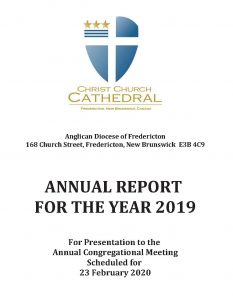
While our times may very well eventually be recorded in history as ones with some of the highest ever standards of living, convenience and lifestyle, that brings with it unique challenges. Our level of "living" also becomes status quo and with that distinction, we forget to be appropriately thankful. Ironically, it makes the times in which we live marked by an incredible degree of uncertainty. While environmentalists continue to issue warnings about danger created by decades of the abuse of the natural environment, we're only now coming to realize all of that fuels the lifestyle we enjoy. The Church too is sounding survivalist alarms on another front.
gone by 2040 ... will be perhaps the only message
The headline in the Anglican Journal January 2020 issue – "Gone by 2040" – with unfortunate tendencies suffered by the media, will be perhaps the only message many will hear. Reading beyond the front page gives the more thoughtful and necessary full story about the issues facing the church – they are no less complex than those facing the rest of the world. How do we respond faithfully to challenges without becoming cynical, selfish or just giving up? These may be the more important questions.
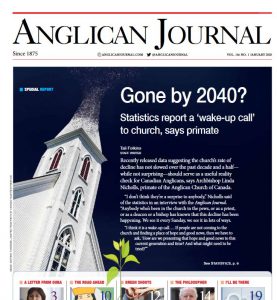
We can draw statistical graphs and extend resulting lines well into the future, charting sure and certain doom and decline as the certain change. None of those conclusions are certain. There are many, many factors involved. A recent article in a local newspaper shared the prediction that most of downtown Fredericton will be under water by 2050. It seems now, that too is yesterday's news, having provided the whow factor impact for at least one day's edition of that particular publication.
Living in the Present, Looking to the Future
It seems to me that the best any of us can do is to be faithful in witness, now. Perhaps we need to be more careful about intentionally not just delivering our current list of problems to a future generation. But is there anything we can practically do to guarantee Christ Church Cathedral will be healthy and viable for decades to come? No more, I might suggest, than what our fore bearers successfully delivered to us. Taking one step at a time, making the very best decisions we can, towards the future God lays, and will lay, before us. What is that? we'll need to ask. Science tells us that the best indicator of the future is found by applying "laws" proven in the past. Theories become laws when it's been determined they "always" apply. As people of faith, one obvious record of law is Holy Scripture. If we believe ourselves hard-pressed, struggling or challenged in the high calling of shining Gospel light in a sometimes very dark world, we need only to read a few pages from the biblical testimony of Christian faith. Maintaining faith is not for the uncommitted. Standing for justice, fairness and the dignity of all is no easy road. Loving neighbour as self is difficult. Fighting the battle against all that would pull down Christ's Church is hard work and always has been. There are no guarantees. Living in a world that pushes back isn't new. Ironically, reflections on the past tell us that the Church has been at its best during times it was most under duress. Let's be resolved in our efforts not to take one another for granted.
The Dean's Priorities
During most given weeks, far more presents itself to be done than any one individual could hope to accomplish. I'm very conscious that the many ministries of the Cathedral and, their comprehensiveness, is only possible with the dedicated help of members of staff and the many, many willing volunteers who step up when it matters. In my role, my approach is to set priorities based first on my calling to priesthood. That is, in fact, what is meant by being in "ordered ministry." Those decisions are always difficult to make. Routinely, in order of importance they are: 1) pastoral needs, especially emergencies; 2) worship and preaching; 3) administration necessary for ongoing operations as smooth and crisis-free as possible. This year in the role of Dean I have, to the best of my ability, attended to customary clerical duties as outlined in our own diocese's expectations of an incumbent priest (Directive 8.2 The Priest in the Parish) and the requirements of the Canon Law to which we ascribe. Providing general support and encouragement for members of staff, including annual reviews for each, were completed. I continue to give special attention to our efforts in communication, being convinced that our official messages need to be honest and accurate, and have significant impact on our image in the local community and beyond. As the Church witnessing to the proclamation of the Gospel of Christ, communication is central to our reason for existence. I keep a constant eye on worship duty schedules and fill gaps where necessary to ensure consistency. See "From the Registers" for an account of our worship activity.
Potential for the Future
I might first offer a reminder of areas I've named as important in previous reports. While the work is never done and there is always room for improvement, you'll agree we've made good progress with many of these.
2017 - 1) Christian formation; 2) Hospitality, welcoming and invitation
2018 - 1) Invitation and welcoming 2) Stewardship
2019 - 1) Stewardship; 2) Ministry with young families; 3) Focus on facilities
While there seems to be significant angst among some regarding the current state of our facilities, especially the Memorial Hall, it is worth noting that maintaining the Memorial Hall represents only about 6% of our total annual operating budget. Yes it is an expense, but it also facilitates the majority of our Monday to Saturday ministry and provides public space for our community, most of which, if discontinued, would be a sure and certain death blow to the vitality of our congregation. There are undoubtably good decisions that can be made now about our properties. I encourage and support their consideration and our taking action on them. However, if the Holy Spirit is speaking, we require a comfortable level of consensus that these are good long term decisions, stabilizing our future, and bettering our ability to function efficiently both now and tomorrow.
If planning for the future is the goal, (and I suggest it always needs to be), perhaps giving serious consideration to what will provide solid return on long term investment is what's most needed. Some options come to mind, and over the next twelve months it is my intention, with the help of others, to endeavor to bring action and attention to them.
... greener church, planned giving, caring for one another
1) A Greener Church
The Fifth Mark of Mission of the Anglican Communion and Anglican Church of Canada is: "to strive to safeguard the integrity of creation and sustain and renew the life of the earth." A visible expression of the fifth mark both "with our lips and in our lives" holds potential for being a significant witness in our times and to the community of which we are a part. Are we being responsible consumers of energy? Are we heating responsibly? Newer, more economical and environmentally friendly technologies for the Cathedral itself could just as easily be considered the logical place to begin. While operating the Memorial Hall represents about 6% of our total budget, heating and routine maintenance of the Cathedral represents over 7%. Reducing dependance on fossil fuels – reducing our carbon footprint – would be a step toward being greener, becoming valuable example, and addressing longer-term budget concerns. While an up front investment would be needed, we could see significant long-term payback in more ways than a few. Having replaced most of our Cathedral lighting to LED, we've reduced electricity consumption considerably. (Thanks Ken Howlett!)
2) Planned Giving
Planned giving is also known as "legacy giving." It enables philanthropic individuals to make larger gifts to the charities that matter to them than they could make from ordinary income. Planned giving means doing more not only now, but also after death, by involving a charity in estate planning. By leveraging financial management tools with little or no impact on personal day to day budgets, with the church as the beneficiary, assets can be secured to fund ministry well into the future. Exploring opportunities to encourage and facilitate planned giving in our congregation is an example of assuring the provision of future ministry and providing solid financial planning for the long term.
3) Caring for One Another
A term I've found useful, succinct, and descriptive, referring to ministry in healthy congregations is "inreach." We're all very aware of the importance of "outreach," but outreach is only possible when we also effectively reach "in" and care for one another. The inreach task, customarily called "pastoral ministry" by the church, is traditionally the domain of "the pastor." That assumption has been and still is worth challenging. We now have excellent programmes of care through our health ministry – helping hands, Cathedral visitors and hospital visitors. Home visitation is not, to date, a ministry of the Cathedral to which others have been invited. If the unspoken expectation, while ideal, is that the Dean, single handedly and regularly visits all homes, the difficulty is the number of months required to accomplish it. A little simple math will reveal that a group of 10 home visitors, doing two visits a month, could complete the task of visiting 240 households inside of one year. That in no way suggests that the Dean does not visit, but would aid meeting a goal that "the Cathedral" needs to be in personal contact with it's membership. We do care. One personal contact from the Cathedral per year might be a minimum standard for which to strive? Positives of such an effort would include: building and better maintaining relationships, more effective communication, a congregation intentionally caring for itself – coordinated and planned "inreach." Providing training, preparation and regular debriefing should all be considered part of equipping and supporting those called to such a ministry.
Suggested resources:
Peel, Donald, “The Ministry of Listening,” Anglican Book Centre, 2006
Stone, Howard, “The Caring Church,” Fortress Press, 1991
Acknowledgments and thanks
In January we welcomed Thomas Gonder to Cathedral Staff as Director of Music. We're looking forward to his becoming one of us and to his offering his gifts and expertise to further the ministry of worship and music of Christ Church Cathedral and the in the wider community.
Our prayers for Elspeth Drinkell as she continues to mourn her loss as we continue to mourn ours. Lest David Drinkell be soon forgotten we acknowledge his uniquely gifted contribution to our ministry and pray that he rest in peace.
We appreciate the contributions made by officers and members of Bishop and Chapter, those continuing terms and those outgoing, especially John McGarry who has given his resignation. Thanks also to those who have agreed to let their names stand for election. As always, thanks to members of Staff for their dedication.
With the effort of many we continue becoming who we are. We are the Body of Christ. May the peace of God which passes all understanding keep your hearts and minds in the love of God and of his Son, Jesus Christ our Lord. Amen.
Respectfully submitted,
Geoffrey Hall, Dean of Fredericton







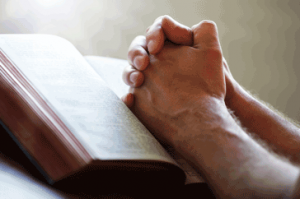
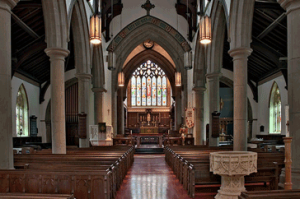


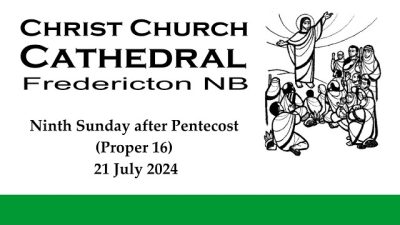
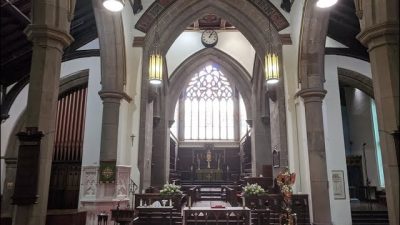
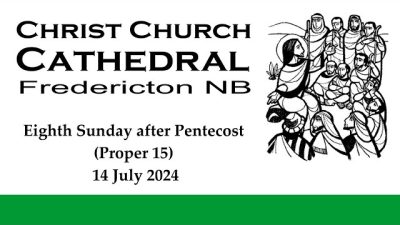




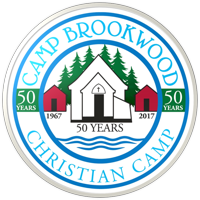


Recent Comments